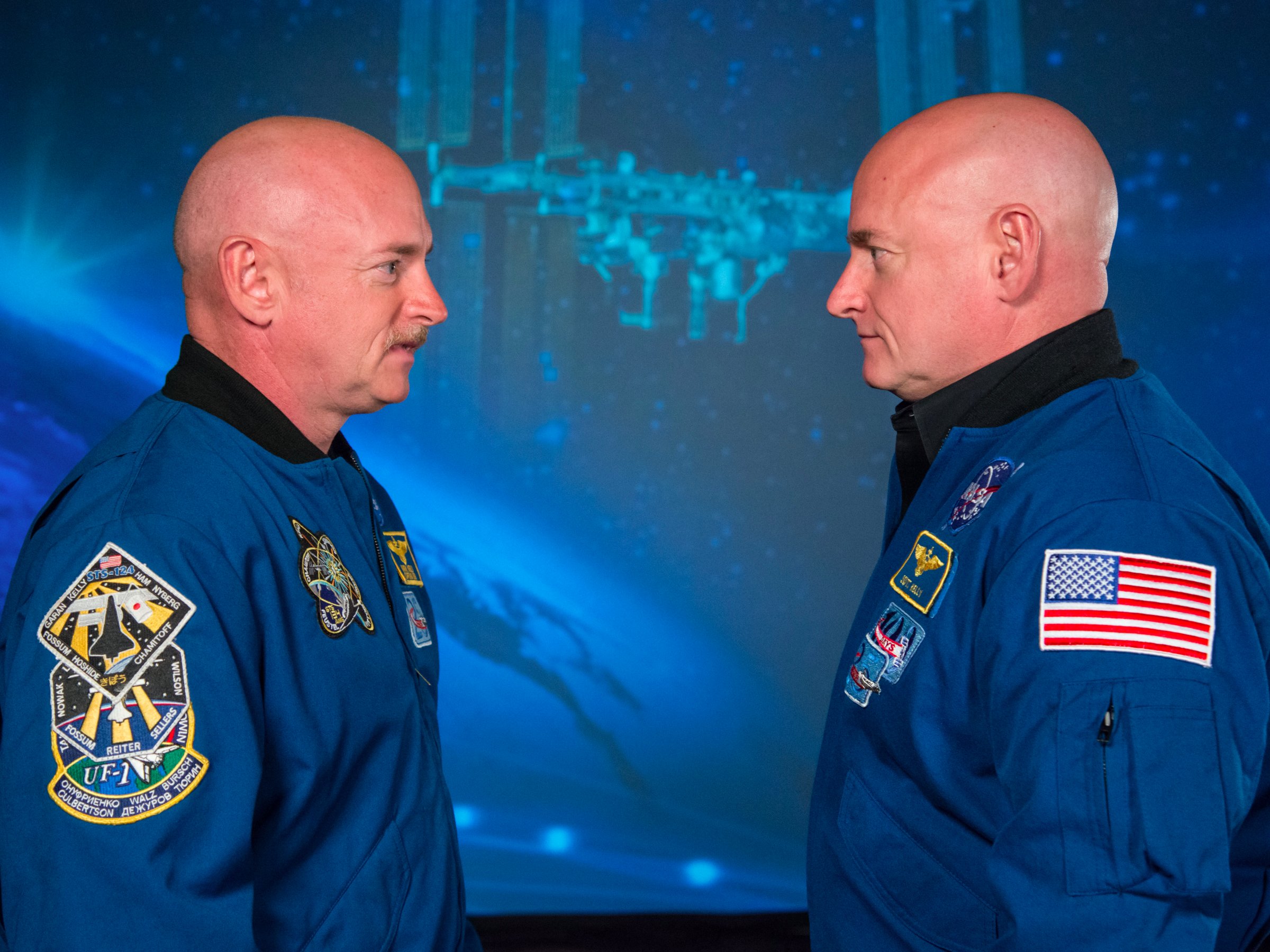NASA studies effect of outer space exposure on twin astronauts

Mark (left) and Scott (right) Kelly back in January 19 before Scott went up to the ISS to live there for a year. Image: NASA
There are still a lot of things to be learned about space, most specifically the effect of being exposed to it on extended periods. For that matter, NASA sent one of twin astronauts into space for a year, while leaving his brother on Earth just to see what changes will take place.
Astronaut Scott Kelly went up to the International Space Station (ISS) and stayed there for 340 days. During that time, scientists have also been observing his twin brother Mark Kelly who remained on Earth, reports Business Insider.
Having the twins for this experiment was ideal, as Mark and Scott have identical DNA. This would allow scientists to better identify the changes that would occur when a human body has been exposed to space for an extended period of time.
Scientists are still combing through a year’s worth of data, so it will take quite a while to figure out everything there is to learn. However, here are some of the things that they’ve uncovered so far:
- Scott’s telomeres (the caps at the end of chromosomes) elongated while he was in space but shrunk back to normal when he got back to Earth. Shorter telomeres are generally associated with getting older. NASA scientists are still studying what this means but it could be linked to all the exercise that Scott does and the low calorie food that he eats in space.
- Mark and Scott have different gut bacteria to aid in digestion. NASA believes this to be caused by their differing diets and environment.
- Scientists are looking for a “space gene” that could have been activated while Scott was in space. While it’s normal for twins to have different mutations in their genome, scientists are wondering if a “space gene” may have popped up with extended exposure to space.
If mankind is to become a space-faring species, it pays to understand how the greater cosmos will affect the predominantly terrestrial body of human beings. Doing so would allow for better preparation and quite possibly lower mortality rate, which is always a good thing. Alfred Bayle